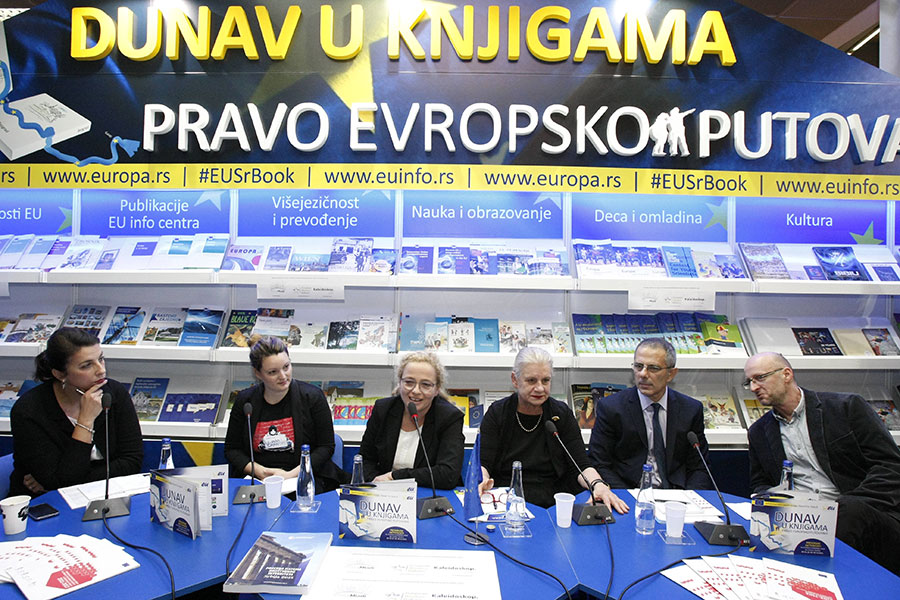The European Union has in the past 10 years supported 250 projects implemented by civil society organisations, said participants of the panel discussion “For a stronger voice of citizens: EU support to civil society in Serbia” held at the EU Delegation’s stand at the International Belgrade Book Fair. “In the past 15 years, the European Union has secured some EUR30 million for civil society organisations in Serbia. Its support has been twofold: it has been focused directly on the NGO sector on the one hand, and aimed at strengthening cooperation between the state and civil sector, on the other,” said Svetlana Djukic Programme Manager at the EU Delegation to Serbia.
Director of Centar za kulturnu dekontaminaciju, established 22 years ago, Borka Pavicevic reminded that the EU supported Centre’s projects which affirmed critical thinking. “Creativity, scepticism, discussion, polemics – these are the things the EU has supported in order to help us become Europe,” Pavicevic said.
Programme Manager of Atina NGO Jelena Hrnjak reminded about taking care of migrants in Serbia. “That is when we realised the strength of our citizens compared to slowly changing system. Three years ago we foresaw the migrant situation and offered the state a solution to take care of those people.”
Programme Director of “Transparency Serbia” Nemanja Nenadic said the projects brought multiple benefits as they enabled long-term and extensive surveys to be conducted. “Our organisation offers clear advice and recommendations on how to change regulation. When public institutions refuse to act on them, that is when the EU comes in useful because it helps us to put those issues at the forefront”.
The Office for Cooperation with Civil Society of the Government of Serbia was set up in 2011. Acting Director of the Office Zarko Stepanovic said the EU recognised its importance since the beginning and supported the development of the Strategy for cooperation with civil society expected to be adopted by the end of 2016. “The Office opened the way for civil society organisations to make proposals, thus allowing some 400 NGOs to take part in the development of the Strategy” he said.
Currently, there are over 27 000 associations, funds and foundations in Serbia.




